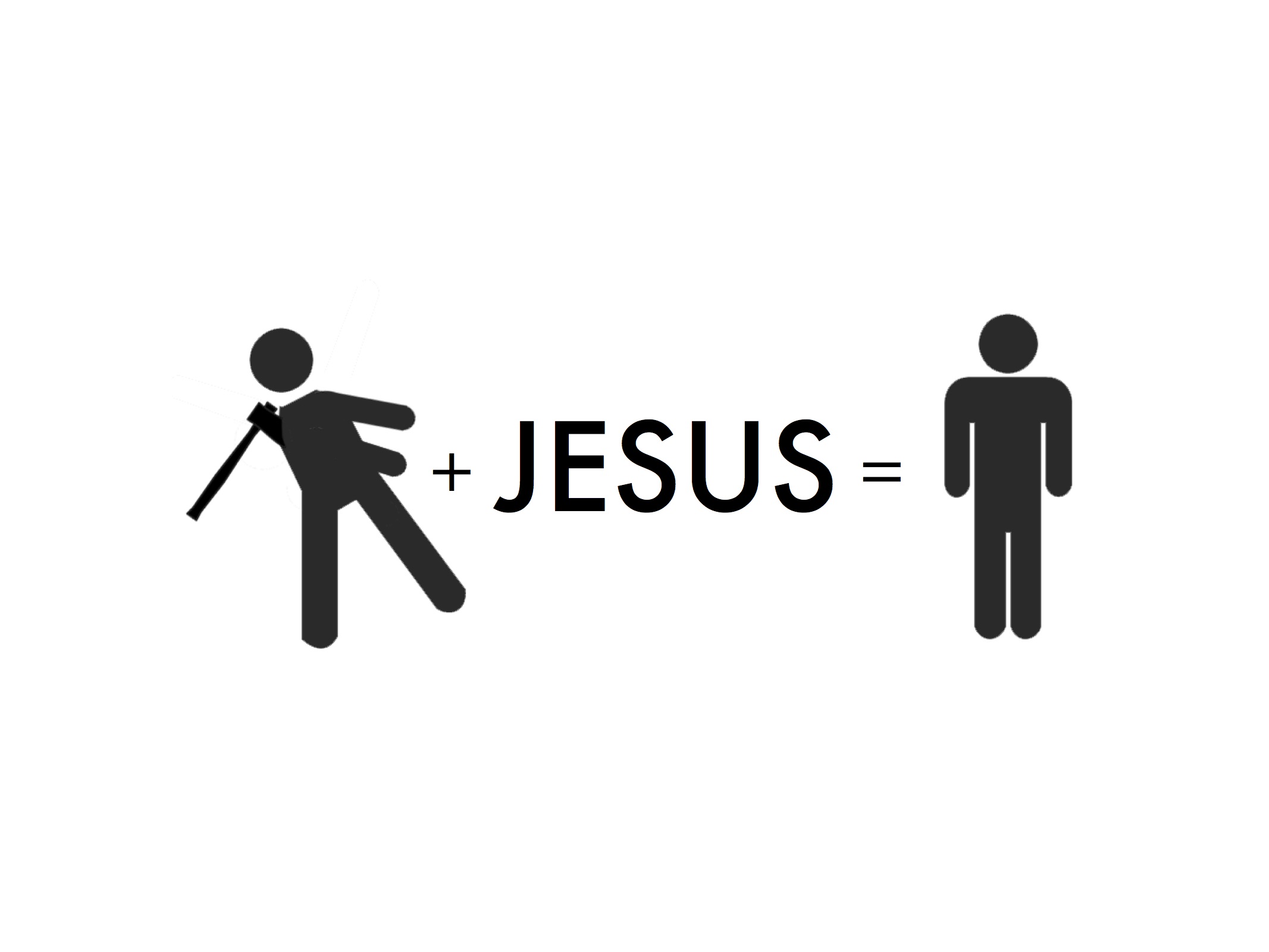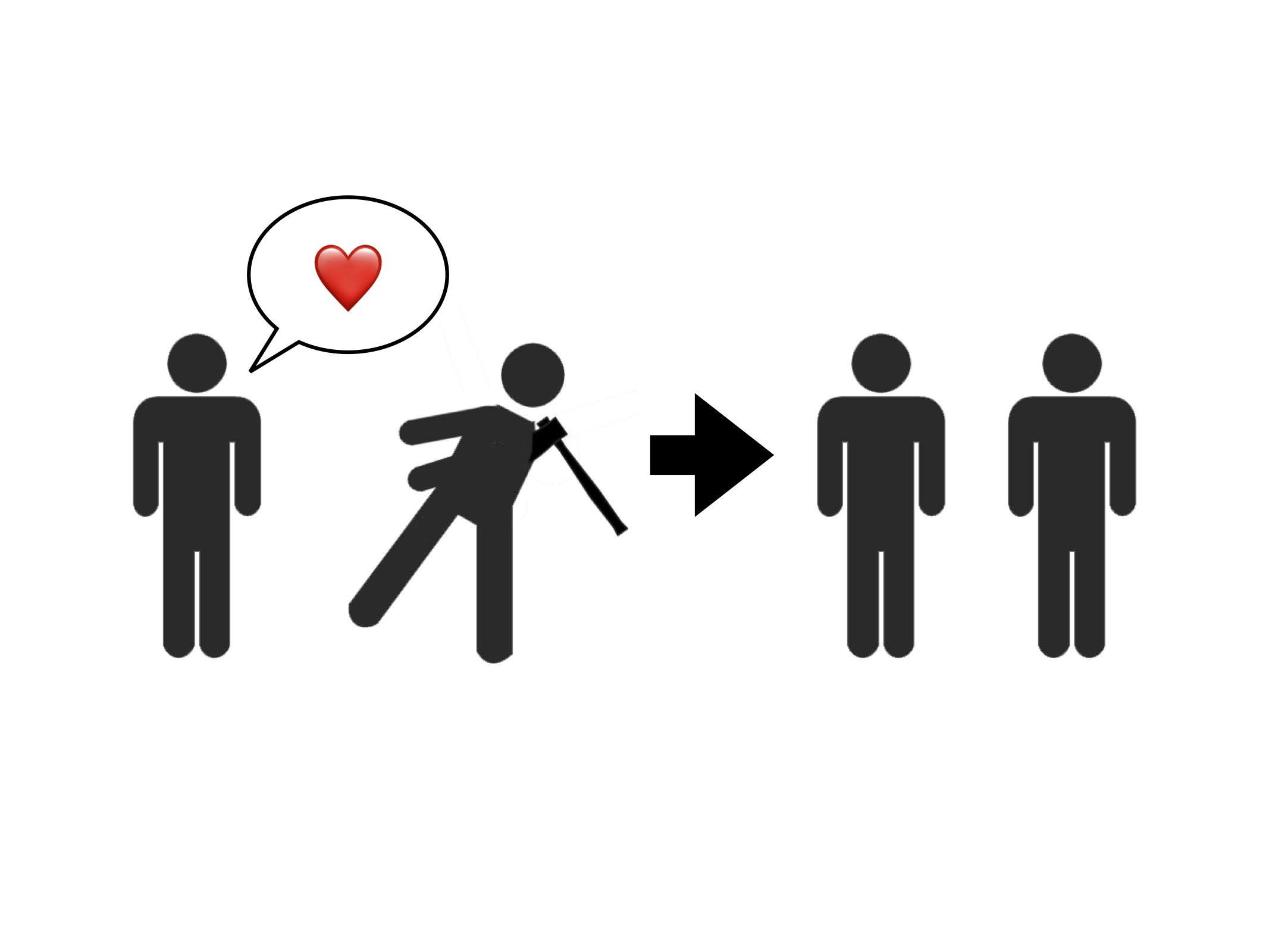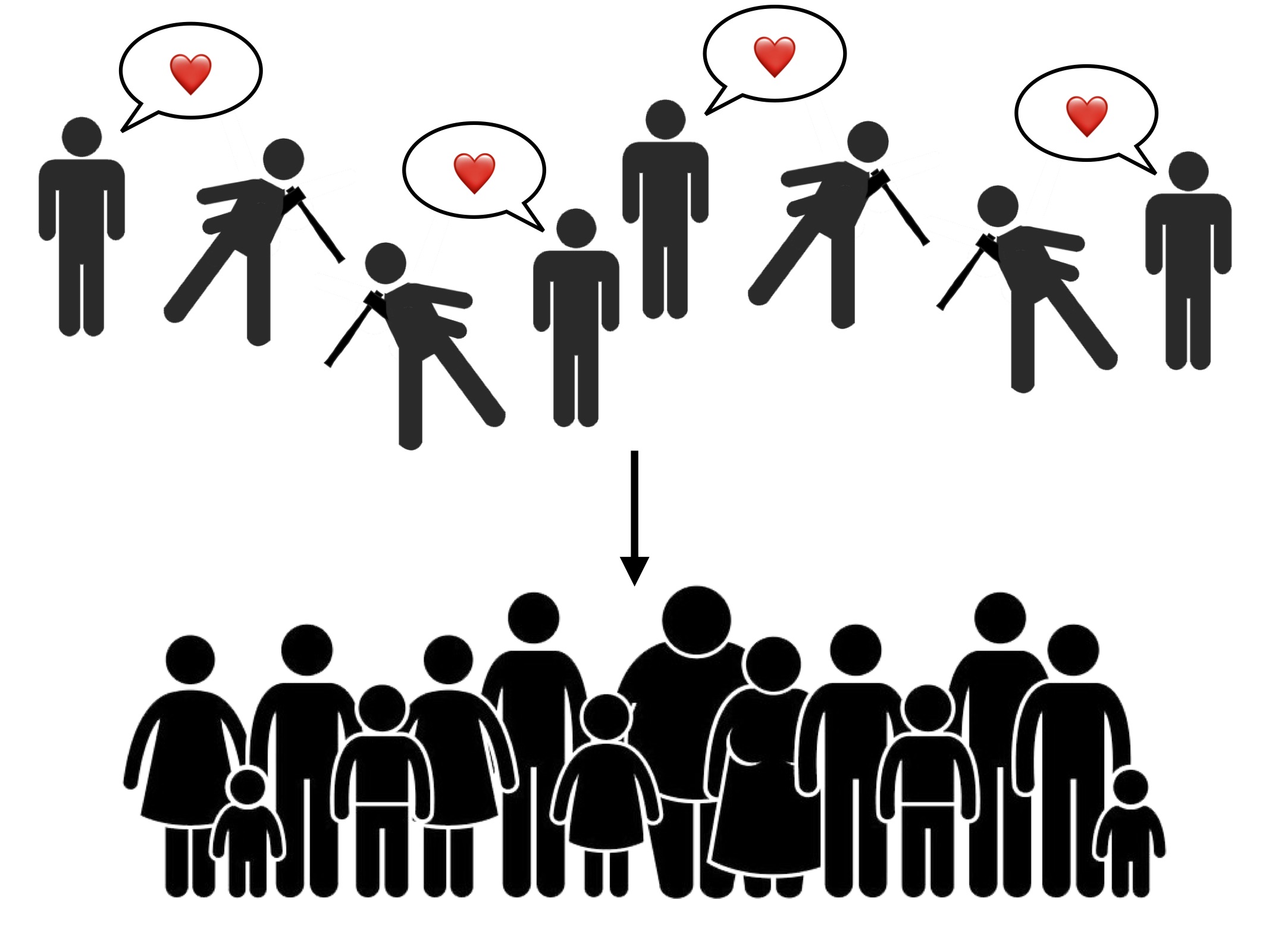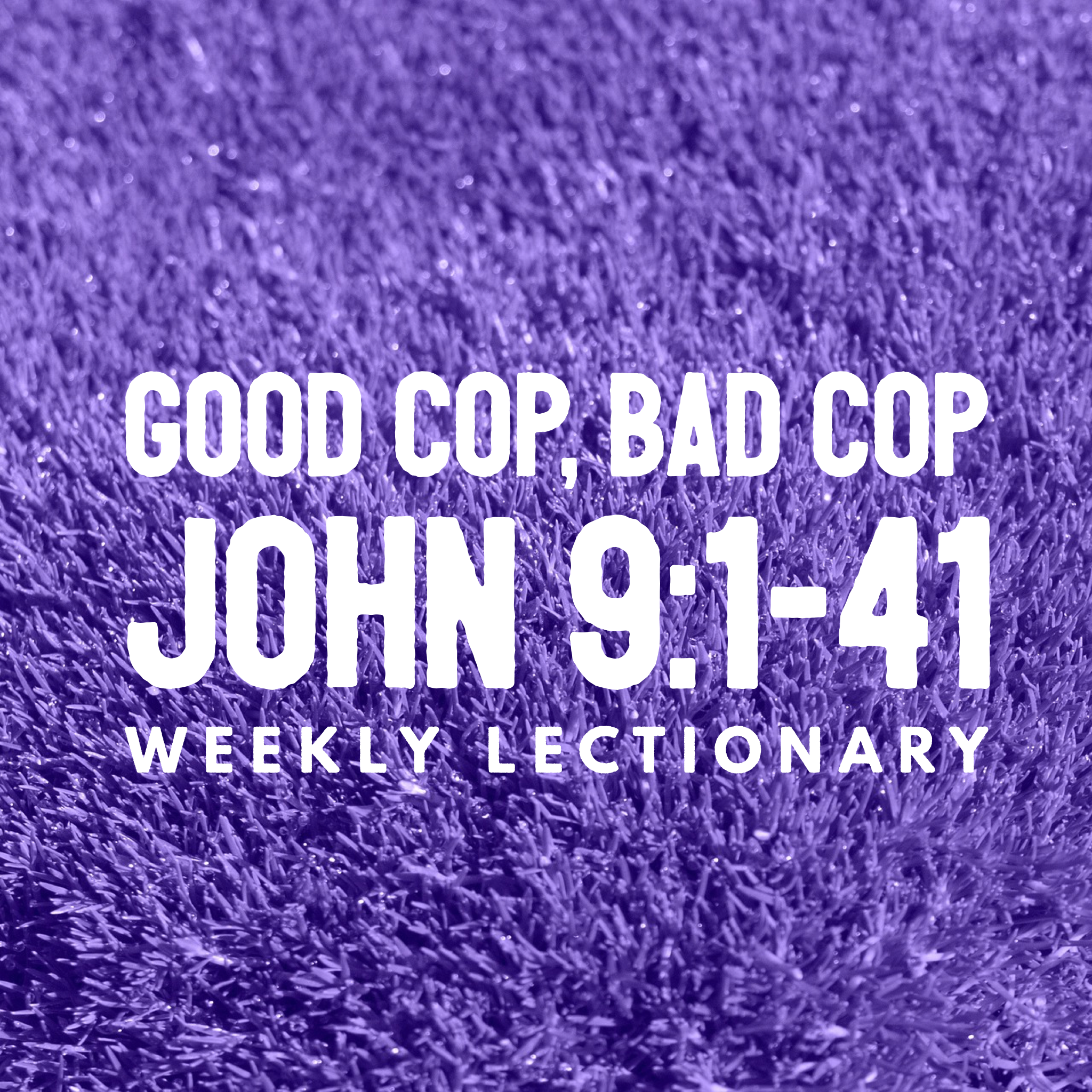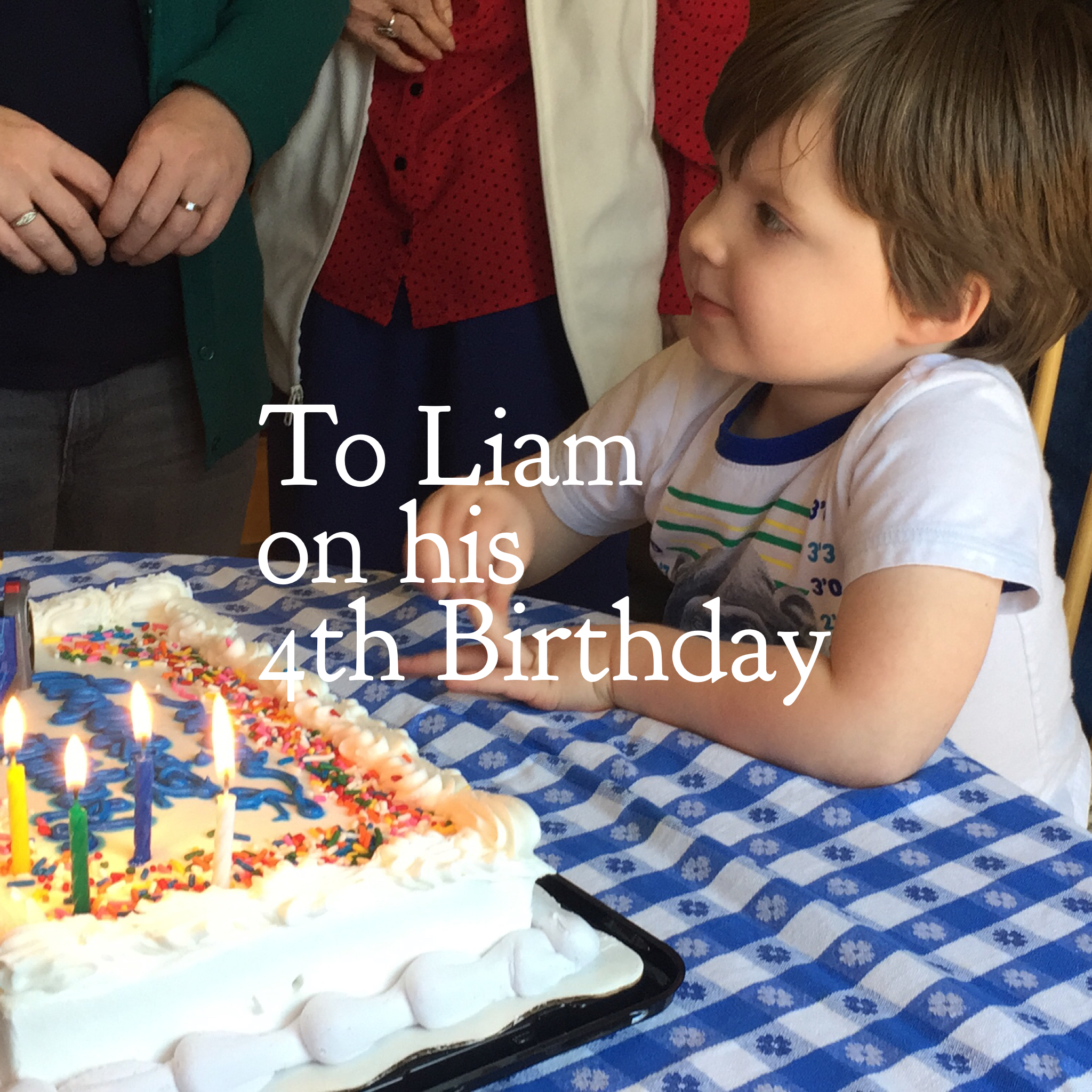The Walking Dead (Mark 5:1-20)
The following is my sermon manuscript from my message The Bridge worship service at Woodmont Christian Church on March 19. This is not necessarily what I said, but it's kind of close.
Let me start off by just laying it out there. The title of this sermon is “The Walking Dead.” I do not like scary movies or TV shows. At all. “Well, Chris, that’s silly. Scary movies aren’t real.” I know that. I know that the odds of being chased by a chainsaw-wielding maniac are infinitesimally small. But that doesn't mean I want to sit down and willing submit myself to be scared by that scant probability. When The Walking Dead first premiered, people told me, “It’s so cool that it takes place in Atlanta. You recognize so many places.” I don’t want the image of terrifying things happening in familiar places. That seems like a horrible idea. Whenever I drive through Atlanta, I’m already convinced the apocalypse is about to break out. I don’t need to add zombies to the mix.
Yet for all of my disdain towards horror movies, I appreciate their purpose from a storytelling standpoint. When a scary movie is well done, it often taps into deeper themes that critique some of the quite real horror that exists in our society. For example, Get Out, which I haven’t seen—again, it’s a scary movie—recently came out. It was the number one film at the box office for several weeks and garnered immense critical acclaim for its commentary on race relations in our country. Another example is Night of the Living Dead. It is the original zombie movie and also the only horror movie that I have ever seen because it was part of my high school film class. That movie about lumbering undead creatures yearning to consume human flesh touched on issues of nuclear proliferation and race. It also terrified me. The point is that the spectacularly scary has a way of shining a light on very real problems in our world today.
As we continue our series on Mark, we pick up today where we left off last week. Clay preached an excellent sermon about Jesus calming the storm. Now that boat has arrived on shore and we have seemingly landed in the middle of a horror movie. The boat arrives on the shoreline in a strange land. Maybe it’s a little foggy. The disciples are looking around kind of worried. “Why did we come here again?” There’s a creepy, minor key piano playing in the background. Jesus steps out of the boat and then, boom! Demon-possessed guy comes running up to Jesus screaming! Mark doesn’t tell us what the disciples do here. They do not even figure into the passage at all, but I like to believe that they all screamed like terrified children.
Now if you are a Jewish reader or listener of this passage, everything in this story screams “Unclean!” Geographically, they’ve gone across the lake to a Gentile region. The man with the unclean spirit lives among the tombs, which the Old Testament said you should not do. There are demons. There are pigs. Eventually there are demon pigs. The demon also says that its name is Legion, which in that time was a term used for a garrison of Roman soldiers. From a certain perspective, the whole thing is a religious horror show.
This man, the Gerasene Demoniac, at the heart of this horror story is barely a man anymore. He made his home among the dead. By day and night he screamed, howled, and cut himself with stones. People in the town had tried to restrain him with chains on his hands and ankles but he broke out of them each time. He was alone. He was afraid. He was a terror to all those around him. He does not really have a life any more. He is a monster, practically a dead man walking. And it is all because this demon that had possessed him.
The demon is something with which many modern readers struggle. Some will not bat an eye at the idea of a person being possessed by a demon. Others have suggested demon possession was a first century explanation for what we today would call a mental illness. I’m going to set aside the idea of talking about this story as mental illness, not because I think the topic of mental illness is unimportant. I think it’s incredibly important and I’m sure most if not all of us are touched by it in some way or another.
Yet in the context of the text, Mark is interested in the idea of the death-dealing embodiment of evil and that’s what I want to zero in on. Now in the context of the story, demons are real, Jesus believes in demons, and converses with demons. I realize that the idea of literal demons possessing people may be a bridge too far for some people and I admit that is often the case for me much of the time. So let us find this middle ground.
Demons and devils are the personification of evil and—regardless of what you may think of demons—evil is quite real. We witness it every day. Whether it is the mistakes we have personally made or being hurt by the choices of others, we can see the marks of evil or—as we often call it in church—sin everywhere. And evil can be a dehumanizing force.
Evil may not be so dramatic that an individual will howl at the moon and live among the tombs, but evil can possess a person just as the man on that shoreline was possessed. When we choose selfishness, when our wants and desires become our life’s dictator and we neglect our love of God and neighbor, if we do this again and again then it turns us into a monster. This horrifying transformation doesn’t happen all at once. I don’t think people wake up one morning and say, “I’m going to become a horrible person today.” Many times, it is a slow descent into darkness, a subtle walk into the dead. Where there should be the life that God intended for us, there is instead a death that hurts us and hurts those around us. And the scary part is this infection of evil can spread.
All of which brings us back to zombies and horror movies. I know that Clay often uses slides during his sermons to highlight quotes and lay out important points. It’s a great visual aid. Writing this sermon, I thought it would be a great idea because seeing something on the screen sticks with you. I’m going to take that in an admittedly different direction. Let’s talk about the spread of evil and sin through lens of a horror movie zombie infestation, shall we?
It starts here with patient zero. A regular person somehow gets infected and becomes a zombie. It could be a virus. It could be radiation. For the purposes of our illustration, we have established that if a person chooses the path of evil that he or she will slowly become the walking dead. This evil can take many different forms. The demon in Mark tells Jesus that its name is Legion for they are many. By the same token many are the paths that a person can take into this dead-like state. It could be selfishness. It could be hatred. It could be laziness and apathy. The list could go on. It’s Legion and there are many ways it could go down.
So how does a zombie virus spread? Typically they attack another person. Now in horror movies this typically happens via the zombie trying to feast on the unfortunate victim. That is technically not what happens in our scenario though I guess there is a situation in which that could happen. For our concerns, sinning—doing things that hurt God, self, neighbor—begets similar behavior. The monster could hit and the person hits back. The monster hordes in selfishness and it provokes another to horde as well. The monster hates and so another person hates. The monster devalues women or someone else and an individual thinks that it is okay to do the same. When the walking dead breathe out fear, others inhale the toxic fumes and begin to see enemies where they ought to see neighbors. Again, it’s Legion and the virus spreads from person to person.
Now what happens if you suddenly have lots of zombies running around and terrorizing people? It’s not good. People live in a panic. Based on my high school viewing of Night of the Living Dead and additional research, there are pretty much three main outcomes for a person in a world overrun by zombies. Group one consists of the people that will be attacked and become zombies themselves. Group two is the group of people who will do anything to survive. Often they make wrong choices, not because they desire to be evil, but they feel like they have no other choice. They horde food and medical supplies to themselves. They often live by a kill-or-be-killed mentality whenever they encounter anyone; even if they run across uninfected people. Though technically not infected by the zombies, the people in this second group succumb to the process of dehumanization by other means. Finally there is the third group, which despite avoiding the ugly fates of the first two groups, still have to live in a world that is seriously messed up.
A seriously messed up world is one where there is systemic evil and it hurts everyone it touches. When people are born into systems where they are hated, they will learn to hate others, come to hate themselves, or have to grapple with a world of hatred. When people are born into systems of economic disparity, they may choose to become overly materialistic, they may steal because they feel like it’s their only choice to survive, and so forth. People become monsters so that they will not be broken by the monster. This systemic stage of evil is where horror movies become apocalyptic and cultures harm countless people.
I bring up this third stage because there are indicators in this passage that suggest Mark is not just talking about one man’s possession, but an entire culture that is possessed. The use of Legion, which I have already referenced multiple times, is a very clear connection to the Roman Empire that occupied Jesus’ homeland. People would have heard that name and their immediate thought would go to the soldiers who patrolled their town and could force them into subjugation.
The Roman Empire had created a system that crushed and conquered. It oppressed, harmed, and terrorized those who were not the favored citizens. The people in Jesus’ day could be forced to carry a soldier’s gear a mile, they lived with memories of their Temple destroyed, they saw their fellow citizens crucified. None of this was life as God intended it. Death hung in the air and death still hangs in the air in a myriad of forms. Anything that yanks creation from the life that God intends for it—whether it be personal, social, political, economical, or whatever else—just stacks dry bones into horrifying bastions of brokenness. Evil is real and the world cries out for rescue.
We all have our zombielands. Some of them are systemic and far-reaching. Others are personal. Regardless, we need to be saved just as this man possessed by evil needed to be saved. As we’ve been talking, it becomes evident that that the odds are massively stacked against Jesus. He is this stranger in a strange land. Everything is religiously unclean. He exists within this system where he is a member of a seemingly powerless minority in the face of this world-crushing empire. Then there is this man with a demon; not just one demon, but a Legion of demons. This terrifying man of the tombs is standing on that beach screaming, yelling, raging at Jesus. Legion begs to be left alone and then begs to be cast into a nearby drove of pigs.
Scholars have wondered if the demons were trying to pull a fast one on Jesus. They didn’t want to be cast out of the region, again there are echoes of the cultural hold that evil has, and figured that perhaps they could still cause trouble in swine form. And in case you were wondering, I did google this and there are multiple horror movies in which a group of pigs or a giant pig terrorizes a community. Regardless, Legion’s plan doesn’t work. The demons are cast into the pigs and the swine immediately stampeded into the sea, plunged to their death and destroyed the demons. Not the ending that PETA would like, but the ending we have.
Jesus is triumphant. God wins. Humanity is restored this man who was tortured and terrorized by evil. The community comes and they see this former man of the tombs sitting with Jesus, dressed and in his right mind. In a lot of gospel stories, this is the point where people start bringing those in the community who were sick, lame, and possessed for Jesus to heal. Yet the story zags where we expect it to zig. It wasn’t just the man who was possessed. This area had been possessed, but in a different way. That possession is demonstrated as an entire community shows up and begs Jesus to leave them alone in the same way that the demons begged Jesus to leave them alone. They have been infected by fear and are too frightened to have God in their midst. It’s Jesus that they want to go back to the sea.
This is not the expected ending. We thought the good guy had won, but he kind of lost. Jesus is asked to turn around and go home. This community is going to miss out on the vital good news that is bringing life and humanity everywhere it goes. The kingdom of God is among them but they don’t want it. Fortunately, this is not the last word in our story.
The former demoniac—not wanting to hang around with these people who have just rejected his literal Savior—wants to follow Jesus. Like the demons and like his community, he too begs the teacher. But he doesn’t beg the teacher to leave. The former man of the tombs begs Jesus to take him on as a disciple. Again, the story twists. Jesus doesn’t agree to this request. Instead he says, “Go home to your own people and tell them how much the Lord has done for you, and how he has had mercy on you.” The man returns home, to these Gentile villages that were so afraid of Jesus, and he tells them his story. And Mark 5:20 closes this tale with this remark, “And all the people were amazed.” That is the final word. God still wins.
Jesus came in part to set creation right again, to undo the evil that spreads like some kind of zombie virus in this world. The scholar N.T. Wright once wrote the following about Jesus casting out demons: “The real battle is against violence itself, against the normal human wickedness that shows itself in the desire for brute force to win the day. If you fight fire with fire, fire still wins. And Jesus has come to win the victory over fire itself, over the rule of bullies and the power-brokers, in favor of the poor, the meek, the mourners, the pure in heart.” Jesus came to the aid of those who were fleeing evil-possessed men and women of this world. But he did not just come to help those who fleeing the evil, but those who were evil themselves. He came to save those who had been possessed. But he was not going to fight fire with fire. He was going to heal.
You see, evil is not the only thing that can spread like some kind of zombie virus. If we bring our slides up again, we can see the way that the kingdom of God can spread. There was a man who was among the walking dead and he encountered Jesus and through that encounter, he became human. He didn’t become perfect. All of us mess up and fall short of what God desires, but the man went back towards what God dreams for humanity. It transformed him. The love of God expressed through Jesus was the antidote to this zombie virus. Then this individual went and found another who had been possessed by fear. The new human told the other about what God had done and that person was amazed. Perhaps she or he takes this way of loving God and neighbor seriously. Now there are two humans. As more and more people share this story of healing and love, in what they say and in what they do, it creates a beloved community. The horror changes into hope. Death works backwards and becomes life.
Lent is this time of year where we sit and wrestle with heartbreak and healing, with death and resurrection. It is a time when we remember the aspects of us that are messed up and need to be healed. We remember the times when we’ve been hurt by the sin of others. And we remember that in Jesus, God knows what it’s like to feel our pain. God wants us to not be among the walking dead, spreading brokenness all around. God wants us to come to know Jesus and to experience newness and wholeness. We don’t need to live among the tombs anymore. We can live and move. The deadness in our lives can be raised to walk again.
(Find a better conclusion here if you can.) [Note: Maybe I did?] This is what I encourage you to do today. The deadness in your life, in whatever of the Legion form it may be, bury it. Leave it behind. Prejudice, selfishness, lust, hatred, self-righteousness, whatever. Bury it. Throw it into the ground and cover it with the soil. It’s a part of your story and always will be, but it doesn’t define you. What you carry with you is what God has done; how God has shown you love, grace, mercy, and given you hope. And that is what you need to tell others with your words and in everything you do. To spread God’s peace wherever you go.










